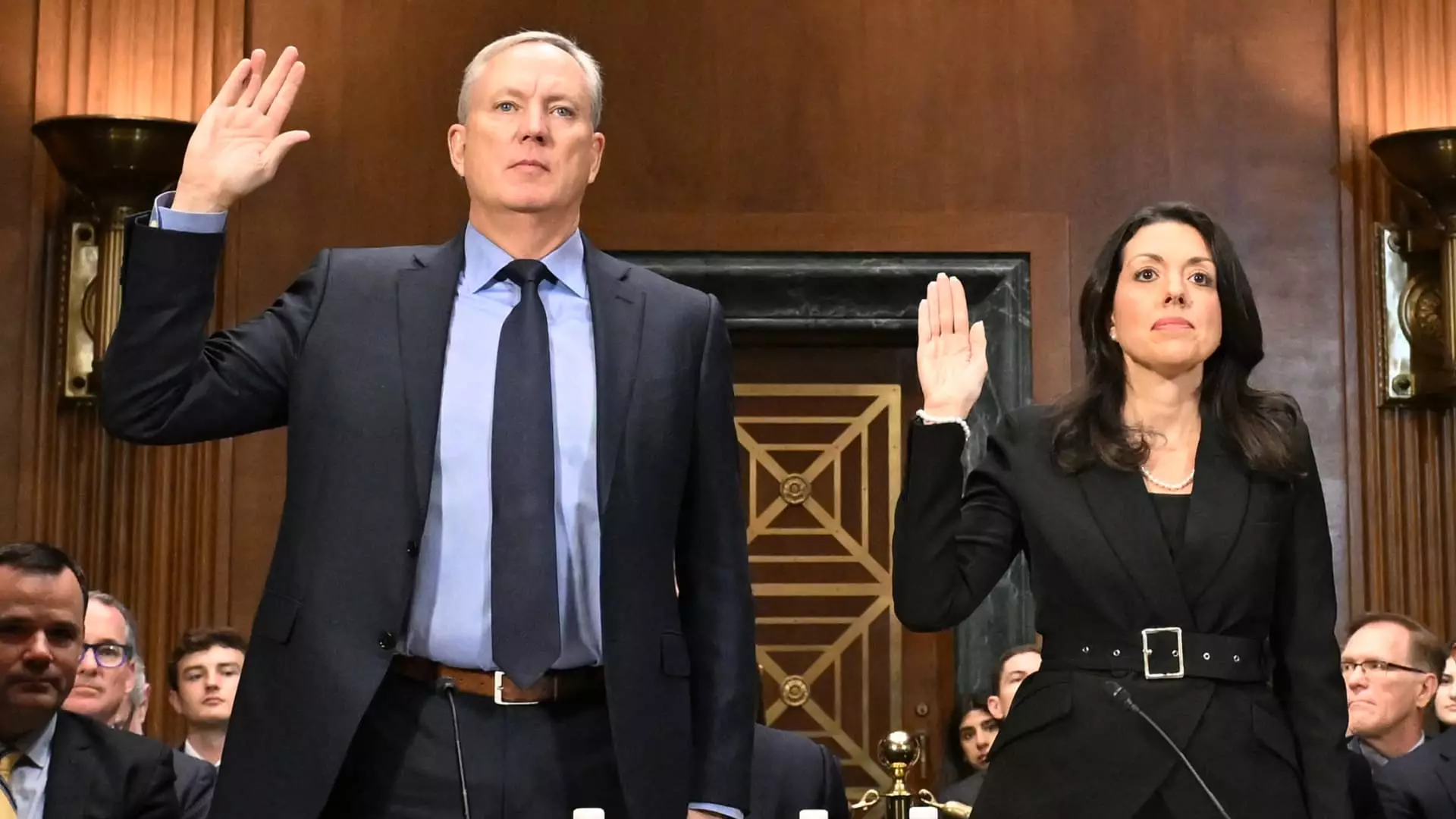The current economic landscape in the United States has sparked renewed scrutiny over the market dominance held by Visa and Mastercard, particularly concerning their control over interchange fees. This issue was thrust into the limelight during a recent hearing held by the Senate Judiciary Committee, where bipartisan members expressed concern about the implications of what many are calling a “duopoly” in the credit card processing sector.
Interchange fees, commonly known as swipe fees, are charges incurred by merchants each time a consumer pays for goods or services using a credit card. These fees are routed from a retailer’s bank to the bank of the cardholder and can often represent a significant financial burden for small businesses. During the hearing, committee chair Senator Dick Durbin revealed staggering statistics: merchants were billed over $100 billion in interchange fees in 2023 alone. With Visa and Mastercard controlling approximately 80% of the credit card processing market, the weight of these charges poses serious questions about fairness and competition within the industry.
The situation has raised eyebrows from members across the political spectrum, uniting both conservative and liberal legislators in seeking solutions to curb the excessive control exerted by these financial giants. This rare consensus reflects the deep-rooted frustration felt by small businesses, which often find themselves in untenable positions when dealing with the likes of Visa and Mastercard.
In response to growing concerns, lawmakers like Durbin and Senator Roger Marshall have introduced the bipartisan Credit Card Competition Act. A primary objective of this legislation is to mandate that banks with considerable assets provide access to additional payment networks aside from Visa and Mastercard. This initiative is aimed at fostering competition in a market that many argue has become stagnant under the pervasive influence of two dominant players.
The proposed legislation could significantly alter the operational dynamics in the credit card industry by granting small business owners the autonomy to choose lower-cost alternatives. This prospect of enhanced consumer choice has become an appealing narrative for advocates of the bill, signaling a potential shift away from a system where interchange fees represent a crushing overhead expense for retailers.
Despite the growing call for reform, Visa and Mastercard remain staunch defenders of their interchange fee structures. Representatives from both companies argued during the hearing that their fees fund critical services and technologies aimed at minimizing fraud and enhancing customer experience. Bill Sheedy from Visa characterized these charges as “incentives,” while also emphasizing the various costs associated with offering secure payment processing.
Critically, the representatives cautioned against the potential pitfalls of the proposed Credit Card Competition Act, suggesting that its implementation might unintentionally diminish consumer choice and disrupt the existing market dynamics favorably tilted towards innovation.
Further complicating matters, Mastercard’s President of the Americas, Linda Kirkpatrick, referenced past regulatory efforts, namely the Durbin amendment from the 2010 Dodd-Frank Act, which aimed to reduce debit card transaction fees but allegedly led to adverse effects, including diminished rewards and increased overall costs for consumers.
The ramifications of high interchange fees extend beyond just merchants; they ultimately impact consumers as well. The National Retail Federation highlighted how these costs trickle down, leading to increased prices for everyday goods and services. According to law professor Roger Alford from Notre Dame, the average American incurred around $1,100 in swipe fees over the previous year—an amount surpassing expenditures on other common items like pets and coffee.
Although Visa and Mastercard agreed to a $30 billion settlement in March aimed at decreasing their swipe fees over a three-year period, this agreement was rejected by a federal judge, who indicated the financial capabilities of these corporations could allow for greater fee reductions.
Moreover, Visa is facing scrutiny from the Justice Department regarding allegations of maintaining an illegal monopoly in the debit card space, exacerbating concerns that the payment processing industry is not operating on a truly competitive basis.
As the debate around interchange fees continues, it poses essential questions about the balance of power in the payments landscape. Both legislators and consumers are calling for greater transparency and fairness in a system that currently appears skewed towards a few major players. The outcome of the ongoing discussions surrounding the Credit Card Competition Act could set a precedent for how payment processing is governed in the future. Ultimately, the aim should be to foster a marketplace where small businesses can thrive without being beholden to high transactional costs, which may ultimately lead to improved pricing structures and better services for consumers.

